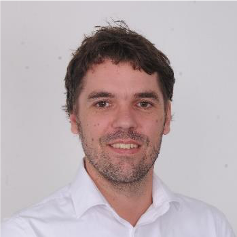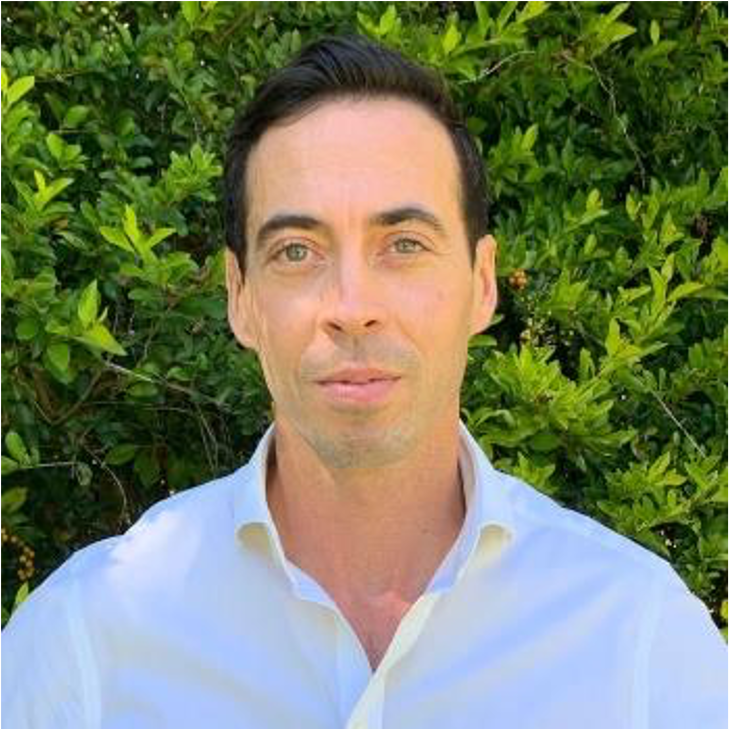CASA webinar 7: Five routes to profitable sourcing from smallholder farmers: investor perspectives on the ‘deal’
CASA EVENT
CASA webinar 7: Five routes to profitable sourcing from smallholder farmers: investor perspectives on the ‘deal’
Five routes to profitable sourcing from smallholder farmers: investor perspectives on the ‘deal’
For a pdf summary of this webinar, click here.
There are 500 million smallholder farmers worldwide. Small-scale farmers in Africa and Asia represent both a key supplier base and a market for firms. But how do investors perceive the smallholder-sourcing business ‘deal’? This webinar built on the recent publication by the CASA Technical Assistance Facility which mapped the landscape of investment in smallholder
sourcing models. To access this publication, click below:
Melanie Machingawuta – CASA Technical Assistance Facility: Perspectives from investors and agribusinesses on sourcing from smallholders.
In May 2021 the CASA Technical Assistance Facility produced a new publication. The report shed light on the current sourcing investment landscape and investor perspectives on smallholder-sourcing businesses . Fifteen investors shared insights on the commercial viability and impact of investments in this asset class. Over one-third of the value of their aggregated ag-portfolios were invested in companies that source from smallholder farmers.
Some key takeaways from this publication were:
– The ag-focused investors saw commercial advantages from sourcing from smallholder farmers, such as:
- Access to greater supply volumes
- Cost-savings on purchases
- Potential for premium / higher prices due to ethical sourcing
– There were also some challenges these investors had to address:
- Securing sufficient quality and quantity of raw materials through efficient aggregation models
- Key role of crop unit economics
- Importance of upstream support services and trust-based relationships with farmers
Investors expressed a need to create more flexible investment vehicles that allow for longer-term horizons and appropriate deal structures. In addition, there needs to be greater use of cost-efficient impact measurement for data-driven decision making, so that investors can evidence the value of smallholder sourcing. The farmer, the investor and the business all need to benefit in order for sustainable and successful sourcing to continue. Rigorous upfront analysis can support investors to better understand whether the benefits of inclusive sourcing justify the cost and efforts, and what is really needed to increase chances of success.
Edward Stiles – Maris Ltd: Incentives required to sustainably source from smallholder farmers.
Where agriculture is a major part of local economy the opportunity to sustainably improve livelihoods in smallholder communities is often a driving factor, particularly for impact investors. For agribusiness, quality is a huge component when considering crops mainly grown by smallholders. If quality is good, the market is incentivized to pay a premium to absorb the cost to source from these smallholder farmers. In case of poor quality, there is no incentive for the business to work with these farmers at there will be limited consumer demand. Shared risk and upfront cost practices must be in place between the businesses involved, the public sector and the investors to incentivize them to work with agribusiness that source from smallholder farmers.
Marcel Neutel – Capital 4 Development Partners (C4D): Opportunities and challenges for investors sourcing from small-scale farmers.
When working with smallholder farmers there needs to be a combination of contractual and a trust-based relationship between the parties. Investors also need to be aware of the structures already put in place by smallholder farmers, including the large role that middle men play in the market. The companies that work with smallholder farmers need to have good cash management so that they are able to source during the harvest periods. Lastly, there is diversity in terms of quality, and strong SMEs need to put standardisation practices in place.
Cara Middleton – IDH Investment Management B.V: Factors that can drive commercial viability and impact.
Knowing and understanding the client so practices can be tailored to their specific needs. Meeting those needs contributes to the likelihood of adoption, which leads to positive results such as cost reductions and increased impact. Creating holistic service packages, including training and inputs (most often finance training ), for the long-term needs for the farmer (and their household) often leads to more sustainable success. Farmers are more likely to pay for these complete service packages. Setting strategic partnerships, with a joint vision, to create meaningful impact at the farm level. Placing a large focus on cost-efficiency, quality and quantity across long-term investment horizons with availability to scale and replicate, leads to greater achievement.
QUESTIONS INVESTORS SHOULD BE ASKING THEMSELVES IN LIGHT OF THESE CONSIDERATIONS:
What is the role of public sector and investor players to create incentives to working with smallholder farmers?
What practices need to be put into place in order to be able to practically source from smallholders?
What structures are already at play that I need to be aware of?
RELEVANT LINKS:
Sign up for the Newsletter
Watch the recording
info@casaprogramme.com
As demand for food increases, most analysts think that sourcing from small-scale producers will be critical to food security…
This webinar built on a recent publication by the CASA Technical Assistance Facility: Sourcing from smallholders: complex challenge or commercial opportunity? Perspectives from investors and agribusinesses.
The publication captures investor perspectives on the commercial viability and development impact of sourcing from smallholder farmers.
Five specific routes where identified for investors, agribusinesses and development partners to support investment in smallholder-sourcing models.
The discussion acknowledged and address the challenges in sourcing from smallholders can bring and use case study evidence to show what can be achieved.
Investors should map the investment gap… through systematic classification and tracking of smallholder-sourcing agribusinesses to provide greater clarity on this ‘asset class’. This can improve guidelines on the blend of capital and Technical Assistance (TA) required to boost effectiveness.
Agribusinesses should invest in thorough upfront… including supply chain, context and end-market analysis, before implementing a small-scale producer sourcing model. In-depth, early analyses helps manage the complexities of the models. This analysis should also pinpoint where private capital should be deployed when commercial gains are evident, and highlight where public funding is needed.
Partnerships between investors, donors and agribusinesses provide essential upstream support to smallholder suppliers.
Investors could establish agricultural investment vehicles… with longer investment horizons than the typical Venture Capital or Private Equity timeframes. An example would be a Permanent Capital Vehicle (PCV),with flexibility for investments to generate returns at their own rate.
Agribusinesses and investors… should leverage monitoring and impact measurement to improve business operations and integrate impact data into existing management systems.
SPEAKERS

Marcel Neutel, partner, C4D, Indonesia
Marcel Neutel is the managing partner at Capital 4 Development (C4D) Partners in Indonesia. C4D Partners is an Impact Investment Fund Manager based in the Netherlands with investment offices in India, Indonesia, and the Philippines. Marcel brings extensive on the ground investment experience in Cameroon, the Philippines and Indonesia. Prior to his work in Cameroon, Marcel was involved in setting up several e-health companies in the Netherlands. Marcel holds an MA in international economics and business from the University of Groningen and a MA in management consultancy from the Erasmus University of Rotterdam.

Cara Middleton, Investment Manager, IDH Investment Management B.V
Cara Middleton is an investment manager at IDH Investment Management B.V She is the manager of the EUR 100 million IDH Farmfit Fund, a blended finance fund to catalyse commercial investment into agricultural value chains and unlock the provision of long-term financing to smallholder farmers and agri SME’s.
Cara was previously based in South Africa, specialising in capital markets and product management within a global Fintech. She started her career in asset management across Southern Africa and emerging markets and has experience across impact, retail, and institutional investors with degrees in Economics and Financial Analysis. She graduated with an Executive Masters at The London School of Economics in social business and entrepreneurship.
www.idhsustainabletrade.com

Ed Stiles, Maris Ltd.
Ed has worked in African agriculture for over 8 years. He lives in Zimbabwe and works for Maris, an investment holding company with operations in five sectors, including agriculture, across East and Southern Africa. Ed is a director of several agribusinesses, including Wakulima Tea Company (WTC). WTC grows, processes and exports tea from Tanzania. 80% of its tea comes from 15,000 smallholder outgrowers who are also shareholders in the company. Ed previously worked for Syngenta, in senior management positions in Zambia, Malawi and Tanzania, primarily responsible for supplying smallholder growers with seeds and other inputs.

Melanie Machingawuta, team lead CASA Technical Assistance Facility at TechnoServe
Melanie Machingawuta is a programme director at TechnoServe and the team lead for the CASA Technical Assistance Facility (TAF). This is a UK Foreign, Commonwealth and Development Office (FCDO) funded initiative aiming to make the commercial and development case for investing in agribusinesses that source produce from smallholder farmers in Africa and Asia. She previously managed the African Agriculture Fund TAF from 2016-2018. Since joining TechnoServe in 2014, Melanie has been primarily focused on the design and implementation of inclusive business models that drive both impact and commercial value, particularly in the African agriculture sector. She brings ~10 years’ experience in facilitating inclusive economic development, holds a Master’s in Development from the London School of Economics and is based in Johannesburg, South Africa.

Alice Chapple
Alice Chapple (moderator) is an economist and a specialist in impact investment and impact assessment. She is CASA’s investment adviser and she established Impact Value in October 2012. Alice previously worked as director of sustainable financial markets at Forum for the Future. She also worked as a financial analyst, fund manager and social and environmental advisor for the CDC Group. Alice’s current roles include chair of Investor Watch, independent chair of the CDC Plus (technical assistance) committee, trustee of the Shell Foundation, and member of the advisory boards of Sainsbury’s Foundation, Frontier Finance Solutions and Connected Asset Management.
Stream
LEAVE A COMMENT
We welcome your feedback on all CASA events and activities. Please leave any questions or comments below.